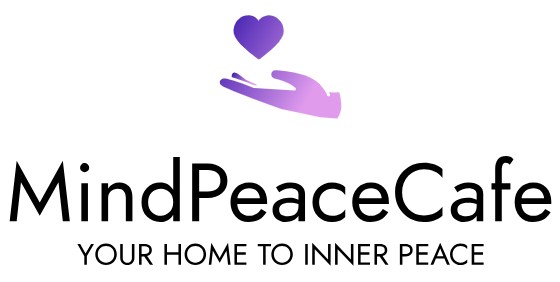Cultivating Calm: How Meditation Nurtures Health and Balance

In today’s fast-paced world, many are turning to a centuries-old practice that offers an array of benefits for both mind and body: meditation. From reducing stress to enhancing emotional well-being, the impact of meditation on health is profound and increasingly supported by scientific research. This article delves into the multifaceted advantages of meditation, shedding light on its positive effects on mental, emotional, and physical well-being. By exploring how meditation can elevate various aspects of our health, we can gain a deeper understanding of its potential to promote wellness and resilience in our daily lives.
1. Understanding the Impact of Meditation on Health
Meditation, an ancient practice with roots in various cultures and traditions, has gained significant attention in modern times for its potential impact on health. The multifaceted benefits of meditation encompass a wide spectrum of physical and mental well-being. From reducing stress and anxiety to improving emotional resilience and promoting overall mental clarity, the practice of meditation has been the subject of numerous studies and research efforts worldwide. These endeavors seek to understand and quantify its influence on our physiological and psychological systems. As a result, an increasing body of evidence suggests that meditation holds promise in enhancing our health holistically. By exploring the comprehensive effects of meditation, we can gain valuable insights into its potential to reshape our approach to wellness.
Recent scientific inquiries into meditation have spotlighted its impact on various health parameters, including blood pressure regulation, pain management, and immune system function. Moreover, studies have explored the role of meditation in mitigating the effects of chronic health conditions, prompting renewed interest in how contemplative practices can complement traditional medical treatments. Understanding the multifaceted impact of meditation on health involves recognizing its potential to not only address specific health concerns but also to foster an overall sense of well-being. This holistic approach to health goes beyond the absence of illness, aiming to cultivate a state of balance and vitality, both physically and mentally.
2. Enhancing Mental and Emotional Well-Being
The practice of meditation has demonstrated significant potential in positively impacting mental and emotional well-being. Studies have documented the role of meditation in enhancing psychological health and promoting emotional resilience. One of the key areas where meditation has shown promise is in stress reduction. By engaging in mindful practices, individuals may experience a reduction in stress levels, leading to improved emotional regulation and a greater sense of calm. Furthermore, meditation has been linked to the management of anxiety, providing individuals with tools to navigate and mitigate feelings of unease, worry, and tension. This not only supports emotional well-being but also equips individuals with strategies to cope with daily stressors.
Another notable aspect of meditation’s influence on mental and emotional well-being is its potential to promote self-awareness and personal growth. Through regular practice, individuals often report an increased understanding of their thoughts, emotions, and behaviors, leading to a deeper sense of self-awareness. This heightened awareness can contribute to improved emotional health, as individuals may develop healthier coping mechanisms and a more balanced perspective on life’s challenges. Moreover, meditation has been associated with a positive impact on self-esteem, fostering a greater sense of self-worth and confidence.
In light of these findings, exploring the positive effects of meditation on psychological health and emotional resilience presents an opportunity to understand how such contemplative practices can contribute to a more balanced and resilient mind and heart.
Reduction of Stress
Research into the impact of meditation on stress reduction has unveiled compelling insights into its efficacy in managing stress-related conditions. Studies have consistently highlighted the role of meditation in mitigating stress levels, offering individuals a valuable tool for stress management and relief. Through practices that encourage mindfulness and focused attention, individuals can experience a reduction in the physiological and psychological effects of stress. This reduction often translates into improved overall well-being, as the body and mind are afforded an opportunity to recuperate and find balance. The impact of meditation on stress reduction extends beyond momentary relief, potentially fostering long-term resilience against stress-related conditions.
Furthermore, exploring the influence of meditation on stress reduction reveals its potential to not only address the symptoms of stress but also to target underlying contributors. By engaging in mindfulness practices, individuals are encouraged to observe their thoughts and emotions, fostering a heightened awareness that can lead to a more adaptive response to stressors. This proactive approach to stress management empowers individuals to develop healthier coping mechanisms, potentially reducing the likelihood of experiencing chronic stress-related conditions.
Understanding the multifaceted nature of stress and its impact on well-being underscores the significance of exploring how meditation can serve as a transformative tool in navigating and alleviating stress. By delving into the mechanisms through which meditation influences stress reduction, individuals and healthcare practitioners alike can gain valuable insights into its potential as a holistic approach to stress management.
Managing Anxiety
The role of meditation in managing anxiety levels has garnered attention within the realms of mental health and wellness. Through the cultivation of mindfulness and relaxation, meditation has shown promise in offering individuals tools to navigate and mitigate the effects of anxiety. By engaging in meditation practices that encourage present-moment awareness, individuals may experience a reduction in the grip of anxious thoughts and feelings, leading to a greater sense of calm and inner peace. This shift in perception and experience can be instrumental in helping individuals develop coping mechanisms to address the challenges posed by anxiety.
Moreover, the application of meditation as a strategy for managing anxiety involves its potential to provide individuals with a renewed perspective on the nature of anxious thoughts and emotions. By fostering a non-judgmental and observant approach to internal experiences, meditation can offer individuals a space to explore their relationship with anxiety, potentially leading to a sense of empowerment and self-awareness. Rather than seeking to eliminate anxiety entirely, meditation may equip individuals with the resilience and skills to coexist with and respond to anxiety in a healthier manner.
Exploring the impact of meditation on anxiety management sheds light on the potential for contemplative practices to serve as a complementary approach to conventional treatments. By delving into the mechanisms through which meditation influences anxiety levels, individuals and mental health practitioners alike can gain valuable insights into its role as a holistic tool for promoting emotional well-being and resilience.
Promoting Emotional Health
The connection between meditation and emotional health has been the subject of considerable exploration, with findings suggesting a potential link between the two. Through regular meditation practice, individuals may experience improvements in self-image, emotional resilience, and a more positive outlook on life. By encouraging individuals to cultivate present-moment awareness and acceptance, meditation can offer a valuable tool for promoting emotional well-being. This capacity for fostering a positive emotional state may contribute to an improved sense of self and a more balanced perspective on life’s challenges.
Furthermore, the potential impact of meditation on reducing symptoms of depression has garnered increasing interest within the mental health community. Studies have highlighted the role of meditation in addressing various aspects of depression, including its potential to mitigate the effects of negative rumination, enhance emotional regulation, and promote a greater sense of inner peace. This multifaceted approach to emotional health underscores the significance of exploring the potential benefits of meditation as a holistic tool for individuals navigating symptoms of depression.
Understanding the intersection between meditation and emotional health presents an opportunity to delve into the mechanisms through which contemplative practices influence our emotional landscape. By exploring the potential connections between meditation and improved self-image, resilient emotional states, and reduced symptoms of depression, individuals and mental health professionals can gain valuable insights into the multifaceted benefits of meditation as a complementary approach to emotional well-being.
Developing Self-Awareness
Exploring the influence of meditation on self-awareness and personal growth unveils compelling insights into the transformative potential of contemplative practices. Through the cultivation of mindfulness and introspection, meditation may provide individuals with a unique opportunity to delve into their internal landscape, fostering a deeper understanding of their thoughts, emotions, and actions. This heightened self-awareness can offer individuals a valuable foundation for personal growth and development, potentially leading to an enhanced capacity for self-reflection and emotional regulation.
Moreover, the role of meditation in promoting self-understanding is closely tied to its potential to facilitate personal growth. By encouraging individuals to observe their thoughts and emotions in a non-judgmental manner, meditation can create space for self-exploration and self-acceptance. This process may lead to a greater sense of clarity, purpose, and resilience, enabling individuals to navigate life’s challenges with a more balanced perspective. The potential for personal growth through meditation extends beyond individual well-being, offering a pathway for individuals to cultivate meaningful connections with others and the world around them.
Understanding the multifaceted nature of self-awareness and personal growth through meditation underscores the significance of exploring its potential benefits. By delving into the mechanisms through which meditation influences self-understanding and personal development, individuals can gain valuable insights into the transformative power of mindfulness and self-reflection in their lives and overall well-being.




